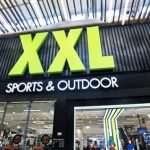The Consumer Product Safety Commission has ruled that an impending ban on certain products containing phthalates will only affect those made after Feb. 10, 2009. The ruling eliminates a major headache for sporting goods suppliers and retailers, who until now feared they would have to throw out existing inventory to comply with the Consumer Product Safety Improvement Act passed by Congress this fall.
That law, enacted largely in response to a public backlash against lead and other contaminants being found in Chinese imports, set new standards for lead and phthalate levels in children's toys. Phthalates are chemicals used in production of a wide range of sporting goods products.
The industry feared the act would ban the sale or distribution of any product not meeting the new standards on Feb. 10, 2009, which could have forced companies to dispose of millions of dollars in inventory.
In a Nov. 17 letter, however, the general counsel for the CSPC said that the portion of the act governing phthalates won't apply retroactively, because it falls under the Consumer Product Safety Act. Conversely, products that exceed new lead limits will be treated as a banned hazardous substance effective Feb. 10 under the Federal Hazardous Substances Act.
For that reason, the CSPC has denied a request to reconsider its advisory opinion on how the new act will affect existing products containing lead. All such products, including those made before Feb. 10, will be banned from commerce. The agency concluded, however, that products containing phthalates made before Feb. 10 are grandfathered under existing law.
“Congress could have regulated phthalates in the same manner as lead and chose not to do so,” wrote Cheryl Falvey, general counsel for the CPSC.
The ruling has come as a huge relief to the sporting goods industry, according to Tom Cove, president and CEO of the Sporting Goods Manufacturing Association.
“Our industry has been scrambling madly to figure out how it was going to deal with literally millions of dollars in inventory,” Cove said late Wednesday in a call to alert SportOneSource of this very important development for the sporting goods industry. “It has been a HUGE issue for lots of companies, and a major issue as well for retailers.”
Cove said the SGMA “has been working like crazy” on the issue. “It is probably the hottest policy issue weve addressed in the industry in years, with a remarkable variety of companies and products affected and nervous,” he wrote in a letter.
The SGMA is continuing to push for a ruling that will clarify how sporting goods products can be exempted from the ban altogether, Cove said.
Below is the text of a letter sent to SGMA members late Wednesday by Bill Sells, SGMA's VP of government relations:
Dear SGMA Member:
I wanted to make sure you are aware of the critical, positive change in the implementation of the phthalate ban just announced by the Consumer Product Safety Commission via an advisory opinion letter. SGMA has worked directly with CPSC on the application of the phthalates provision over the past few months and considers this clarification a major improvement for the industry.
In short, the CPSC General Counsel issued an opinion that the ban on toys and child care products containing phthalates only applies to products manufactured on or after February 10, 2009 implementation date for the phthalates ban. A November 17, 2009 letter from CPSC General Counsel Cheryl Falvey clarified how the Commission interprets the phthalates ban. The commission views the ban as not retroactive and not applicable to inventory manufactured prior to the February 10, 2009 implementation date on phthalates in toys.
This is a huge relief for manufacturers of products containing phthalates that may be considered toys. As you know, due to the vague definition of a toy as “a product a child use when it plays”, certain sporting goods and licensed products could have been subjected to the ban. The CPSC is currently soliciting comments from all stakeholders on the phthalates issue. SGMA continues to work with the CPSC to clarify how the new product safety laws apply to sporting goods, fitness and licensed products. We hope to have a CPSC advisory opinion clarifying how sporting goods and licensed products are defined as different from childrens toys and therefore not subject to the phthalates provision of the new product safety law. We caution you that this most recent pronouncement is subject to change and recommend that all use of phthalates be carefully examined.
The attached letter states:
“The Consumer Product Safety Act expressly states that consumer product safety standards apply only to products manufactured after the effective date of the new standard.”
This interpretation of the law resolves two major issues for manufacturers:
- Compliance with respect to existing inventory and products currently in the pipeline that may contain Phthalates
- Testing of existing inventory and products manufactured prior to February 10, 2009 to certify that they are phthalate-free
The letter denies a request on implementation of the new “lead content” limitations as the “lead” restrictions fall under the Federal Hazardous Substances Act. Manufacturers must certify compliance with the new “lead content” limitations as of the February 10, 2009 implementation date.
SGMA hopes this new information helps as you work toward compliance with the new laws.















